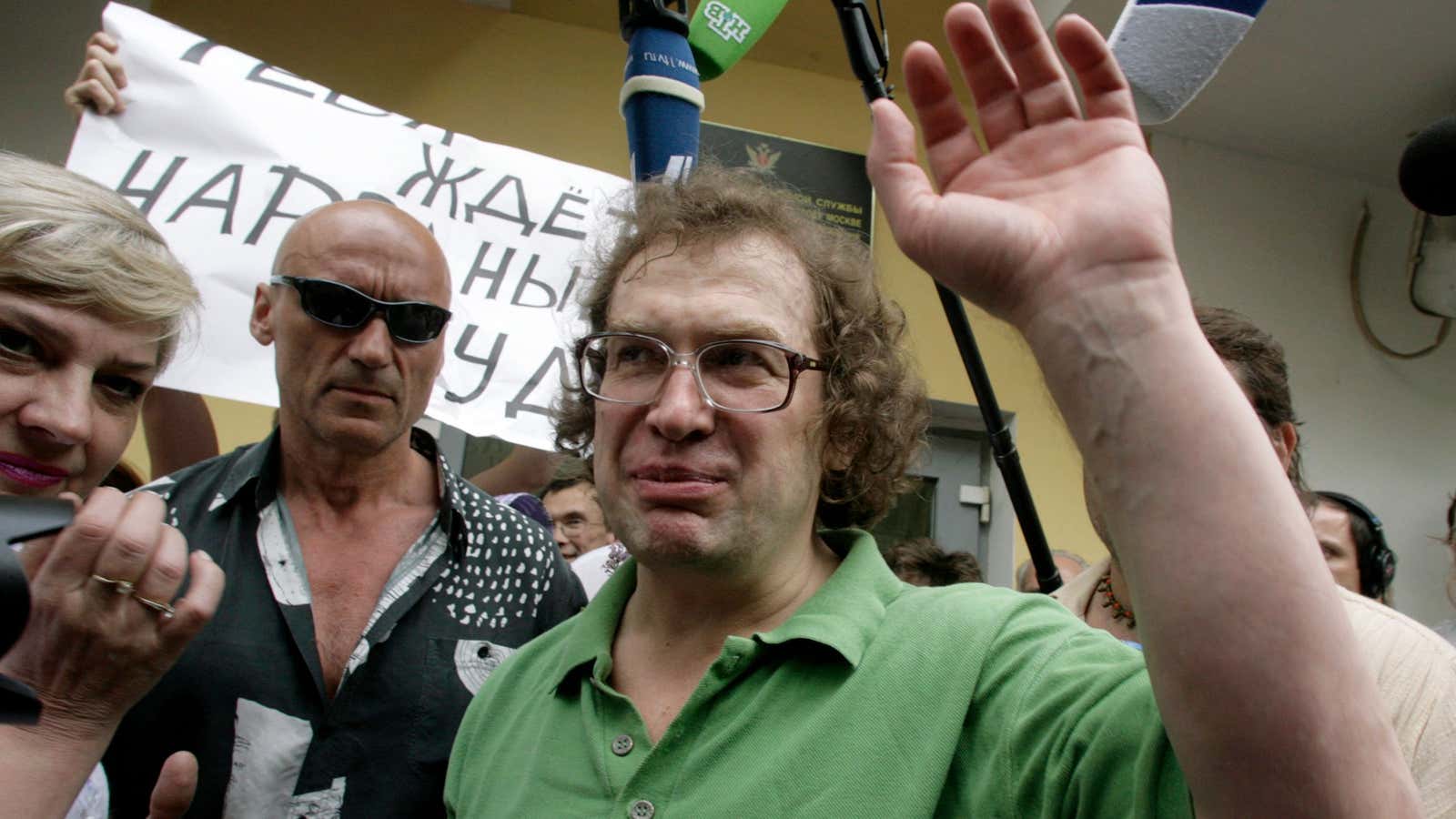In most Nigerian cultures, the news of the death a person; important or otherwise, usually sparks collective sorrow, sober reflection and then depending on the age and social class of the individual, lavish and colorful celebrations of their life and achievements.
But right now, Nigerians are conflicted about the news of the death of Sergei Mavrodi, a convicted Russian fraudster, who died of a heart attack, aged 63, in a Moscow hospital on Mar. 25. That’s because Mavrodi is best known as the founder of the infamous Mavrodi Mundial Moneybox (MMM) ponzi scheme. It took him less than a year to become a key influencer in Nigeria’s vast informal economy through MMM and his death has left many locals uncertain how to feel about his impact on Africa’s largest country by population. When we typed “Mavrodi” into Google this week, all the top news links on his death were from Nigerian newspapers.
It all dates back to November 2015 when MMM launched a website in Nigeria describing itself as a “mutual aid fund where ordinary people help each other”. It guaranteed returns of a whopping 30% per month on payments, and for a while it worked so word spread quickly. Between February and July 2016, the number of people signed up to the ponzi scheme grew from a few hundred thousand to over two million people. Despite the Central Bank repeatedly warning Nigerians against committing funds to the scheme and the Economic and Financial Crimes Commission (EFCC) launching an investigation into the scheme’s operations, Nigerians continued to join the platform.
It was easy to understand why people would join. Nigeria was in the grip of its worst economic recession for 25 years and it was a period of severe hardship for many Nigerians as the economy nearly ground to a halt. It meant any possibility of making decent investment returns seemed like a chance worth taking for many people. And then suddenly, in December 2016, MMM suspended its operations in Nigeria. Much to the consternation of many people who’d been hoping to withdraw funds to spend over the Christmas holidays, the company cited a “heavy workload on the system”, saying it was taking a short break and promised to return and be better.
But it never truly returned. The ponzi bubble burst at the worst possible time and left many Nigerians in despair at their lost “investments”. Some got on social media to complain while others counted their losses and moved on to newer ponzi schemes like Ultimate Cycler and ABCDonor.
Yet none have been anywhere as successful or as influential as MMM. At one point back in 2016, everything from WhatsApp groups to Church fellowships were dominated by the impact of the ponzi scheme, as ordinary Nigerians chased the promise of relatively easy money, whose only real investment risk seemed to be time and patience.
That patience, especially during hard times in Nigeria is usually expressed through religion. Nigerians are generally optimistic and a lot of that optimism is couched in faith. There’s a belief that in time things will get better or “e go better” to use the local parlance. This means on the one hand while some Nigerians of faith had long held on to the fervent hope Mavrodi would return with their money some day, other MMM victims were pleased to note their god had shown up just in time to exact revenge on the Russian (even if he probably had a pre-existing heart condition). Most people—MMM investors or not—treated news of Mavrodi’s death with the typical dark humor Nigerians use to cope with tough circumstances.
But the death of MMM hasn’t necessarily marked the end of the search for the quick buck. In a tough and flawed system, Nigerians have shown themselves time and again to favor the quick money fix. The ponzi scheme in Nigeria may be dead, but its marginally more respectable cousin, multi-level marketing seems to be on the rise. Also of interest now in Nigeria are cryptocurrencies like bitcoin. The promise of miraculous return on investment in any form is always welcomed by Nigerians—even though cryptocurrencies like bitcoin are currency not an investment tool. An early adoption of cryptocurrency and blockchain technology in Africa could usher in a new wave of development. But in Nigeria, for now, it’s just perceived as a substitute for an MMM-type get rich scheme.
While few people would call the death of Sergei Mavrodi, a loss to the world of high finance or financial inclusion in the developing world, for many, MMM was a blueprint on how to defraud citizens in emerging markets where regulatory oversight tends to be lax. It therefore also shows how to prevent the next ponzi scheme in the future.
